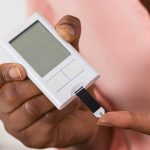
Winter can be hard on your skin, but you can take steps to keep it soft and supple, dermatologists say. “When the weather changes, your skin care products should, too. For most of us, dry skin makes an appearance in the winter due to changes in temperature and humidity, so you need to think about appropriate skin care formulations,” said Dr. Rajani Katta. She’s a clinical professor of dermatology with the University of Texas Health Science Center at Houston. Katta and her colleague, Dr. Megan Rogge, an assistant professor of dermatology at the university, offered these tips to protect your skin: Choose thick skin creams over watery lotions. “Lotions are the least moisturizing, because they have such a high quantity of water. Creams are a better choice for those with dry skin,” Katta said in a university news release. Use sunblock. Rogge explained that “even when the temperature drops, the sun’s rays can still emit powerful ultraviolet radiation. If you’re close to snow or water, those UV rays can be even more potent due to the reflective surfaces, which makes wearing protection paramount.” Don’t take long, hot showers. “Many of us love to linger longer in steaming hot showers, particularly when it’s cold outside. These feel great, especially when your skin is itchy,” Rogge added. “But this can actually damage your skin barrier, and also… read on >















